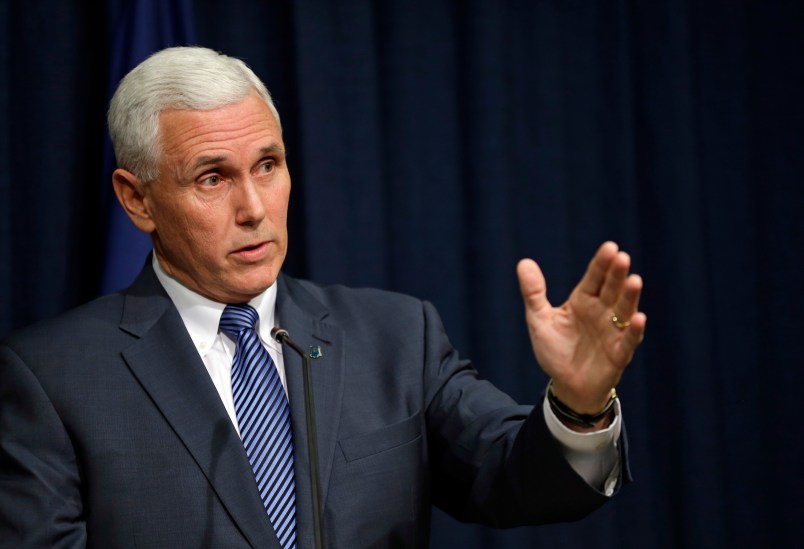Did the State of Indiana have any idea what it was getting itself into? Reading the history of this particular law, the relatively quiet progress of the legislation, followed by the avalanche of criticism and boycotts, the answer seems almost certainly to be no. There’s now even a backdraft of commentary that the criticism and boycotts are somehow hypocritical since 19 other states and the federal government have similar laws. And the state’s hapless Gov. Mike Pence is claiming that Barack Obama voted for a similar law when he was in the Illinois state legislature. Indeed, Pence now says he will push for a new law to “clarify” the law that’s gotten his state in all this trouble.
But all of this seems to miss the point. There are tipping point moments in which things that were once uncontroversial or unpunished suddenly become very controversial and bring in their wake a storm of backlash. What’s most interesting is how these changes are often not incremental. They build slowly and then suddenly the terms are entirely different. It’s not surprising that something like this would eventually happen. But just why it happened in this case and in this way is less than clear.
The fact that other states have so called “religious freedom restoration acts” is at best misleading. The movement to push these laws goes back at least two decades. But until quite recently they were not specifically, almost exclusively, focused on gays and lesbians. Two things have changed. In the last eighteen months, social conservatives have recognized that they’ve lost the public battle over gay rights. Marriage equality will almost certainly be the law of the land nationwide in the near future. And the rulings that set the stage for that change will likely knock down all remaining legally sanctioned discrimination against gays and lesbians in the coming years. So social conservatives have retreated to a defensive action of accepting legally sanctioned equality but trying to create a carve out of discrimination under the guise of ‘religious liberty.’ The second thing is Hobby Lobby and that the signal that the Supreme Court will accept a concept of religious liberty far more expansive than anything seen in the past.
But we don’t need to look at RFRAs. Don’t we go through this story almost every year in which some red or reddish state pushes through some anti-gay rights law? This happens every year like spring follows winter. But this time something is different. Yes, there have been boycotts before. In Indiana itself, business groups wary of bad publicity and boycotts played a role in beating back another effort to ban same sex marriages. But here you have a flood of proactive statements by different companies saying they’ll shun the state. That seems to have created something of a rush to the exits (or entrances?) with various organizations which a few years ago likely wouldn’t have touched this kind of controversy signing themselves up for the effort.
Now Gov. Pence is reduced to lamely complaining that his and the legislatures efforts have been misunderstood or distorted. “I just can’t account for the hostility that’s been directed at our state,” Pence told the Indianapolis Star. “I’ve been taken aback by the mischaracterizations from outside the state of Indiana about what is in this bill.” He can’t even manage the standard, conservatives in my state are being victimized by the axis of gays and liberals. He seems genuinely surprised.
In the past, states could pass these bills as sops to social conservatives with little penalty other than disapprobation from people they didn’t care about anyway. But that seems to have changed.






